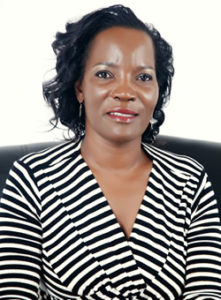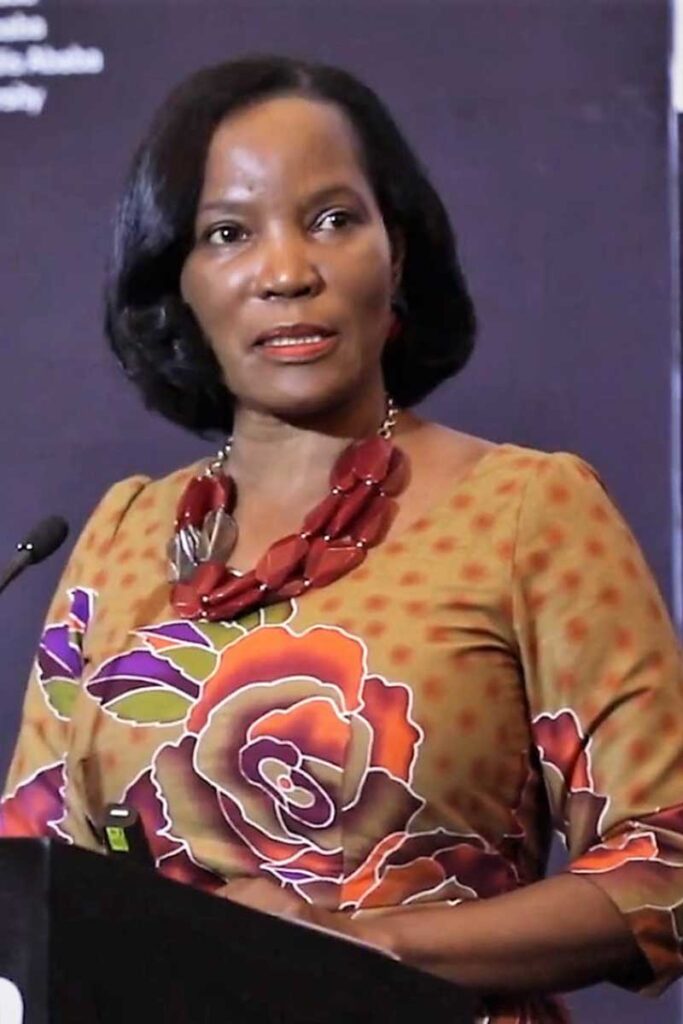Ugandan mayor Jennifer Musisi’s strong city government attracts praise and criticism

Some see Jennifer Musisi, the head of Kampala City Council Authority (KCCA), as a trailblazer of urban transformation in Africa. To others she represents an authoritarian regime that has ridden roughshod over citizens’ livelihoods and human rights.
A lawyer and former tax administrator, Ms Musisi was hand-picked by Uganda’s president, Yoweri Museveni, to head the KCCA amid criticism that the authority was no more than a tool of the ruling party. Her name, Musisi, which means “earthquake” in Luganda, the country’s most widely spoken dialect, reflects the firmness of purpose with which she has set about transforming a city that was once in shambles, and over which vultures once flew in search of carrion.
Mr Museveni reportedly plucked Ms Musisi out of her early retirement from the Uganda Revenue Authority (URA), and a lucrative baking business, to take the job. According to Arinaitwe Rugyendo, a journalist writing for Red Pepper, a privately-owned news outlet based in Kampala, she is “soft-spoken but clearly steely”, a dedicated adherent of Pentecostal Christianity and a “pious, incorruptible technocrat”. She is also one of several Ugandan women who have achieved high-profile local and international careers, including former URA head Allen Kagina, Oxfam International boss Winnie Byanyima and International Court of Justice judge Julia Sebutinde.
Ms Musisi was appointed in 2011, shortly after Mr Museveni, who had ruled since 1986, had won a fourth five-year term. The opposition accused Mr Museveni and his party, the National Resistance Movement (NRM), of buying votes. Allegations of election-rigging continued to haunt Ugandan politics that year when the ruling party, having taken the presidency, battled for the capital, Kampala, in local elections that took place a month after the presidential elections.
At the centre of this battle was Elias Lukwago, an opposition politician known as much for his penchant for dining with market vendors as for his confrontations with the police. Mr Lukwago was running against Peter Ssematimba, a flamboyant pastor and radio presenter who the NRM hoped would deliver Kampala to the party for the first time. However, the opposition won and Mr Lukwago was elected.
It was a hollow victory. Shortly afterward, Ms Musisi swooped in, taking the newly created position of executive director of the KCCA. It soon became clear that she was the centre of power and the opposition, in spite their victory, would not have much say in how the city is run. Mr Lukwago came to be known as the “mayor without robes”, and was, following numerous allegations of incompetence, squeezed out of office within a year. Perceptions that Ms Musisi and the KCCA considered themselves above the law were strengthened when they ignored a court order to reinstate Mr Lukwago.
Ms Musisi unabashedly credits Mr Museveni’s personal support for her success. Kampala now boasts better roads, organised markets, green spaces and less bureaucracy for citizens wanting to access services. And the president likes to cite Ms Musisi’s personal loyalty to him as an example for civil servants to follow.
To those who grew up in the capital at a time when truck-size green rubbish bins overflowing with garbage were city landmarks, Kampala is now a utopia. Despite its dysfunctional fountain, the park on Kampala road, in one of the most congested areas in the city, is the first of its kind in Uganda: a welcome green space where people can relax. The army has traditionally controlled most open spaces in the city, including Constitutional Square and Kololo airstrip at former Kampala Airport (now known as Independence Park).
Kampala may be decades away from having a proper public transport system. The boda boda—or motorcycle taxis—are still the cause for most road accidents. But now, some areas of the city boast well-paved walkways. Working buses provide cheap transport and help to decongest the city. There are still floods, but many roads on the outskirts of the city have been fixed. Kampala is better lit, with solar-powered street lights.
Financially, the KCCA is also doing well. Currently, revenue collection is more than doubling each year, and the council also receives 300% more government revenue than do other local authorities, in proportion to their budgets. The KCCA’s total budgeted income for 2014/2015 was 182 billion Ugandan shillings (about $65.8m), about two thirds of which was direct government funding. The council’s government funding has also increased over the years, while its budget allocation to the agriculture, education and health sectors, for instance, has either dwindled or increased only marginally.
KCCA employees are among the best-paid in the country. In 2012, Ms Musisi earned about $14,000 per month—over thirty-six times the salary of a government doctor and nearly four times the quarterly budget of a typical village health centre. The lowest paid KCCA worker, the tea lady, earns $440—nearly double the amount doctors earn.
But these munificent salaries have brought considerable criticism of the KCCA. Ms Musisi has only been as successful as anyone else would have been, given the protection of the president and the same resources, opponents say. They argue that her success reflects a deeper problem—the president’s creation of a system of governance that nurtures and rewards individuals who are loyal to him, while punishing those who are not.
The NRM assigns limited resources to local governments deemed to be pro-opposition, according to the UN. Museveni has openly told electorates that he “owns all the money in Uganda”. Anyone who wants a piece of the national cake must support the ruling party.
“We should not celebrate [Ms] Musisi’s ‘successes’,” says Dickens Kamugisha, Executive Director of the Africa Institute for Energy Governance, a Kampala-based political and economic watchdog. “Rather, we should worry, because we have invested in individuals instead of institutions—from the president [right down] to local government.”
Part and parcel of Ms Musisi’s legacy is the fear that she has sowed among traders in the city. “You do not know whether you will come back tomorrow and find bulldozers have razed down your business,” says Nassim Namukasa, a beauty shop owner whose structure has so far survived. “Tomorrow they could decide that I have to go.”
The KCCA insists that it always gives traders notice before it destroys “undesirable structures”, but the traders say that this is not always the case. Men in KCCA uniforms allegedly? physically assault roadside hawkers and confiscate their merchandise.
In May 2014 the KCCA’s brutality was highlighted when a council vehicle ran over and killed a two-year-old child, Ryan Ssemaganda, while his mother was in court answering charges of illegal hawking. Ssemaganda, left in the care of his grandmother outsdide the court, had wandered away to find his mother. “[Her arrest] was really a violation of her right [to earn a living],” says human rights lawyer Ladislaus Rwakafuzi, based in Kampala.
Informal traders say the KCCA offers them alternative locations that are not economically viable, in fancy malls and markets where the rent is too high. An appropriate developmental approach, they say, would provide alternative locations for informal businesses or alternative livelihoods for those who cannot continue to operate their businesses, rather than simply taking them away.
In response, the government tabled an amendment to the Kampala Capital City Authority Act which, if passed, would transferred political leadership of the city from the mayoral office to the minister for Kampala. Even if Mr Lukwago were to win an election under its terms, the mayoral post would have been less significant than it already was. Other amendments were also on the cards, including one that would see the mayor voted in by city councillors, not by Kampala’s electorate, which has consistently voted for opposition candidates.
Mr Lukwago has ignored the proposed amendments. On November 16th last year he marched with dozens of his supporters to the electoral commission to insist on being nominated. Police dispersed the crowd with gunshots and teargas. Two people, including a journalist, were injured. A day later, the government made a U-turn, withdrawing amendments and allowing Mr Lukwago’s nomination.
None of this flusters Ms Musisi, who is known as the “Iron Lady” of Kampala. Even her most vociferous critics agree that Kampala is a better place with her hand on the helm. Every year in October, at the Kampala City Festival—another of Ms Musisi’s initiatives, which the KCCA bills as “the biggest street party in east Africa”—the city’s residents come together to celebrate their developing capital city. Colourfully dressed, Ms Musisi herself likes to lead the party.
Some say the festivities only hide the stench that lies beneath this progress. To others, they are a worthy celebration. After all, aren’t great metropolises all over the world built on filth?



